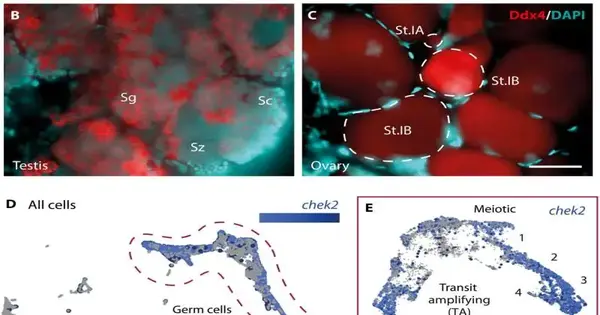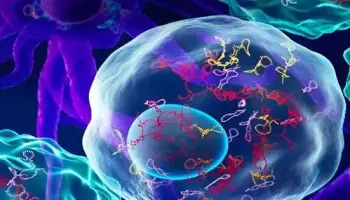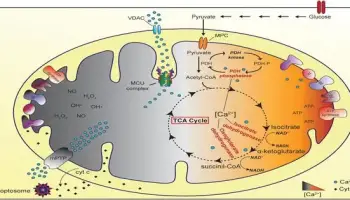Mutations that disrupt the development of germ cells cause infertility or birth defects. Mutations that cause female infertility in humans, such as mutations in the gene BMP15, also cause infertility in zebrafish. However, female zebrafish can undergo a complete reversal of sex traits.
Researchers at the Icahn School of Medicine and the University of California, Davis, have studied how to prevent ovary cell loss as well as the sex reversal in fish from ovary to testis. The experts explored which specific cells facilitate ovarian failure and sex reversal, and by identifying these cells, they determined potential pathways to prevent ovarian failure.
Their findings are published in the journal Science Advances.
In humans, as in zebrafish, sex organ formation begins with a genital ridge that is identical in males and females and later forms an ovary or testis. After sex determination, an ovary may experience premature ovarian failure as a result of fertility disorders or the loss of cells and follicles that lead to masculinization. Masculinization is the development of male sexual characteristics in a female. In the case of female zebrafish, ovarian failure can result in complete female-to-male sex reversal.
“We have identified cells and pathways that may serve as therapeutic targets to improve reproductive disorders such as polycystic ovary syndrome and premature ovarian failure in women. These targets may also have implications for menopause and alter the way that cancer treatments are administered in order to maintain fertility.”
Florence Marlow, Ph.D., Associate Professor of Cell, Developmental, and Regenerative Biology.
The researchers discovered that ovarian immune cells called macrophages are the critical drivers of ovarian failure and masculinization, according to the study. Maintenance of ovarian follicles in animals requires the gene BMP15. Similarly, in humans, BMP15 has been implicated in reproductive disorders that cause premature ovarian insufficiency or premature ovarian failure. These conditions not only lead to sterility but more broadly affect female health, including bone, cardiovascular, neurological, and autoimmune conditions like rheumatoid arthritis and lupus.
In this study, the experts used genetic approaches to screen for the cell types that are responsible for ovarian failure associated with mutations in the BMP15 gene. They found that the complete elimination of macrophages prevented ovarian cell loss and sex reversal. Further, they used single-cell RNA sequencing to identify the genes expressed by individual cells in the fish’s ovaries and identified a subset of cells that produce immune-regulating proteins.
“The cells and pathways that we identified represent potential therapeutic targets to preserve fertility and ameliorate reproductive disorders, including polycystic ovary syndrome and premature ovarian failure in [a] woman, and may have implications in menopause, as well as modifications to therapeutic approaches to cancer treatments to preserve fertility,” said corresponding author Florence Marlow, Ph.D., Associate Professor of Cell, Developmental, and Regenerative Biology and researcher in the Black Family Stem Cell Institute at the Icahn School of Medicine at Mount Sinai.
“This work may lead to earlier detection and improved therapies or interventions for premature ovarian insufficiency. Early detection and better therapeutic approaches for reproductive disorders and treatments that preserve ovarian function will have profound impacts on the health and well-being of patients.”
The Marlow Lab will next conduct research to understand the embryonic origins of the immune system-activating cell populations and how sex hormones influence immune cell populations in the ovary and testis, as this might provide insight into sex-specific differences in immune function that have been observed in humans.
More information: Paloma Bravo et al, Macrophage activation drives ovarian failure and masculinization in zebrafish, Science Advances (2023). DOI: 10.1126/sciadv.adg7488





